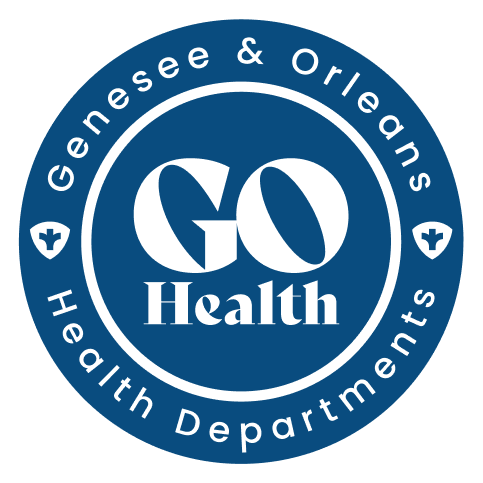Lead Poisoning Prevention/Healthy Neighborhoods Program
Lead (Pb) is a naturally-occurring metal that has been used in a wide-variety of products including paint, gasoline, plumbing materials, ceramics, batteries, cosmetics, and more. In recent decades, the federal government has phased lead out of many of these products, due to the hazards lead poses to our health. For example, the manufacture of lead-based household paint was banned in 1978 and the use of lead in gasoline, which began to decline in 1973, was eliminated by 1996.
Dust. Millions of homes still contain surfaces covered with old lead-based paint. As the paint chips and deteriorates, it can turn into dust. In the United States, exposure to lead dust is the most common source of lead poisoning.
Soil. Soil can become contaminated with lead when lead-based paint flakes off the outside of a building and gets mixed with the soil. Lead exuded from car exhausts prior to the elimination of leaded gasoline is also a major contributor, as the contamination persists in soil even today.
Drinking water. Older plumbing and distribution lines that bring water to and throughout your home can contain lead, and that lead can leach out into the water that you drink. Luckily, you can have your water tested for the presence of lead. Click Here (for well water) or click here (for public water) to find out how to have your water tested for free through the NYS Department of Health.
Lead poisoning is caused by swallowing or breathing lead.
In adults, lead exposure most often occurs at work, especially for individuals working in construction or demolition, welding, manufacture, or some other trade where lead exposure might occur. Adults with elevated blood lead levels may experience cardiovascular issues including high blood pressure and hypertension, nervous disorders such as tremors, reduced kidney function, and even reproductive harm. Lead exposure can also harm the babies of expectant mothers.
Children, especially those under the age of 6, are much more susceptible to the risks of lead exposure. This increased risk is due to their rapidly-growing bodies and brains, and their tendency to place hands, toys, and other objects in their mouths. Lead can have severe effects on a child’s development and behavior, including diminished IQ, increased aggression, and attention-related behaviors such as attention deficit hyperactivity disorder (ADHD). These effects are often permanent, which means exposure to lead at a young age can drastically alter the course of a person’s life.
At very high levels, lead poisoning can be life-threatening for both children and adults
1.) Test your home for lead.
- If you live in a home built before 1978, have your home inspected by a certified lead inspector. GO Health also has certified individuals on staff.
- If you live an apartment, contact your landlord to inquire if any lead inspection has been performed or if there are any known lead hazards in your rental unit.
2.) Keep children away from lead hazards.
- Clean! Proper, routine cleaning of hands, toys, and household surfaces may be the most effective way to prevent lead exposure. Horizontal surfaces (floors, windows, doorways, furniture, etc.) can accumulate lead dust. Click here for a basic lead cleaning guide. Block your child’s access to windows, stairwells, or any other areas with visibly chipping or peeling paint.
- Remember – lead can sometimes come from things other than lead paint. Candy, toys, glazed pottery, and folk medicine made in other countries can contain lead. Be aware of recalled consumer products by monitoring the Consumer Product safety Commission and the Food and Drug Administration websites.
3.) Renovate safely. Home repairs like sanding or scraping paint can create dangerous lead dust.
- Keep children and pregnant women away from the work area.
- Make sure you and/or any workers are trained in lead-safe work practices.
- Contact GO Health for more information.
New York State Public Health Law mandates that the Genesee and Orleans County Health Departments intervene with any child who has an EBL ≥ 5µg/dL (greater than or equal to).
GO Health Nursing and Environmental Staff will contact the child’s parents or guardians and coordinate a time to meet at the child’s home. The purpose of this visit is to check the home for any obvious signs of lead hazards that can be addressed right away, to ask questions regarding any other possible sources of the lead exposure, and to briefly assess the EBL child for developmental milestones. GO Health staff will schedule a full Lead Inspection and Risk Assessment, which we will use to provide you with a clear report on where the lead hazards exist in your home.
In January of 2019, the Genesee County Health Department (GCHD) received a $1.3M federal grant from the Department of Housing and Urban Development (HUD) to address lead-based paint hazards in residential buildings within the counties of Genesee and Orleans. Of this $1.3M total, HUD has directed that $1M be used specifically for lead-based paint hazard reduction activities, while $300K is to be directed to other health-related home repairs, maintenance, and upgrades. The funds were initially earmarked strictly for use in the City of Batavia and the Village of Albion. Fortunately, in December of 2020, HUD approved an expansion of the Genesee-Orleans Lead Hazard Control and Healthy Homes Program to include qualified properties throughout all municipalities of both Genesee and Orleans Counties. Eligible homeowners, and landlords with eligible tenants, may apply to receive these funds. Landlords are required to match 10% of the total project costs. For example, a landlord would be required to pay $500 toward a $5,000 project, or $2,000 toward a $20,000 project. Buildings containing more than one unit are accepted, even if all units are not eligible based on the requirements described below. No match is required for owner-occupied dwellings. All recipients of these grant funds are required to maintain ownership of the residence for 5 years following project completion.
Projects are bid on and completed by a pre-approved list of local contractors, all verified as properly trained and EPA-certified in lead-safe work practices. Contractors who wish to be on our list should contact this office.
Applications can be obtained by contacting lead program staff at the Genesee County Health Department. Program staff can quickly determine your initial eligibility, and will help to guide you through the application process, which requires document gathering and filling out forms by the owners and tenants. The following are key requirements for eligibility to receive these funds: low income tenants or homeowners (call the Genesee County Health Department for details regarding vacant units), dwelling was built prior to 1978 and the dwelling contains lead-based paint, families with at least one child under the age of 6 living there or visiting frequently, or an expectant mother. If you need help determining if your family or home fits the criteria, contact lead program staff.
HUD Contractor Inquiry Form
HUD Program Paperwork
Lead Hazard Control & Healthy Homes Program Brochure for Homeowners
Lead Hazard Control & Healthy Homes Program Brochure for Landlords
In October of 2021, the Genesee County Health Department received $1.2M in funding from the Centers for Disease Control and Prevention to eliminate childhood lead poisoning within the GLOW region (Genesee, Livingston, Orleans, Wyoming Counties). The GLOW Childhood Lead Poisoning Prevention Program (GLOW CLPPP) was created from this funding and is being used for the development of outreach and educational activities for the residents within these four counties.
GLOW CLPPP educates our communities about the danger of lead-based paint and how to identify lead-based paint hazards, how lead affects our children’s bodies, how to reduce a child’s exposure to lead hazards, and the importance of blood lead testing for children. GLOW CLPPP also works with different community organizations to reach more people about lead safety for our children and has created the GLOW Lead Coalition to share ideas and resources with community organizations and advocate for policy change.
Anyone interested in learning more about GLOW CLPPP, or wants to receive education, please reach out to the lead program staff at (585) 344-2580 ext.5555 or [email protected]
Resources:
CDC: https://www.cdc.gov/lead-prevention/about/index.html
CDC 5 Things You Can Do to Lower
Eliminate Exposure to Lead. Know the Signs of Lead Exposure in Children
In January of 2024, the Genesee County Health Department (GCHD) received a $1.2M federal grant from the Department of Housing and Urban Development (HUD) to address health and safety hazards in residential buildings within the counties of Genesee, Livingston, Orleans, and Wyoming. Eligible homeowners, and landlords with eligible tenants, may apply to receive these funds. Landlords are required to match 10% of the total project costs. For example, a landlord would be required to pay $500 toward a $5,000 project, or $2,000 toward a $20,000 project. Buildings containing more than one unit are accepted, even if all units are not eligible based on the requirements described below. No match is required for owner-occupied dwellings. All recipients of these grant funds are required to maintain ownership of the residence for 5 years following project completion.
Projects are bid on and completed by a pre-approved list of local contractors. Contractors who wish to be on our list should contact this office.
Applications can be obtained by contacting lead program staff at the Genesee County Health Department. Program staff can quickly determine your initial eligibility, and will help to guide you through the application process, which requires document gathering and filling out forms by the owners and tenants. The following are key requirements for eligibility to receive these funds: low-income tenants or homeowners (call the Genesee County Health Department for details regarding vacant units) and dwelling contains a health or safety hazard. If you need help determining if your family or home fits the criteria, contact lead program staff.
Healthy Homes Production Contractor Inquiry Form
Healthy Homes Production Paperwork
Healthy Homes Production Brochure – Homeowners
Healthy Homes Production Brochure – Landlords
The Genesee County Health Department received $477,000 in funding from the New York State Department of Health to implement the Healthy Neighborhoods Program (HNP) from 2022 to 2027. The goals of HNP are to reduce hospitalizations due to asthma, prevent childhood lead poisoning, improve indoor air quality, and reduce injuries due to household fires and safety hazards. Households in the Town and City of Batavia are eligible to participate in the program free of cost. Healthcare providers and other agencies may refer eligible households to the program.
HNP Staff will visit homes to check for health hazards including:
- Lack of working smoke alarms, carbon monoxide detectors, and fire extinguishers
- Blocked fire exits
- Paint in poor condition and other lead hazards
- Poor condition of roof, floors, walls, handrails, and steps
- Mold and water leaks
- Pests
- Asthma triggers
Homes may be provided with information on fire safety, carbon monoxide poisoning, radon gas, pest control, smoking cessation, asthma triggers, and lead poisoning prevention.
Eligible homes may receive free supplies:
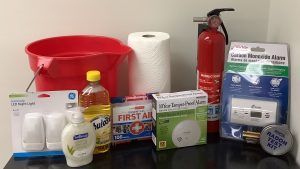
Participation is optional and information provided to staff is confidential.
To complete a Healthy Neighborhoods Program Referral form, please click here.
Links and Resources:
Asthma
Indoor Air Quality
Centers for Disease Control and Prevention Carbon Monoxide Poisoning
New York State Department of Health Radon
Protect Your Family from Radon Brochure
Pests
Environmental Protection Agency (EPA) – Got Pests? Control Them Safely
Fire Safety and Injury Prevention
National Council on Aging – Falls Prevention for Older Adults
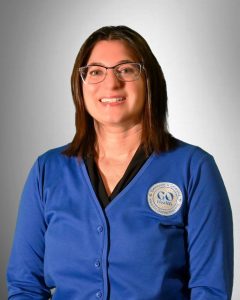
GENESEE COUNTY
3837 West Main Street Road, Batavia, NY 14020
PHONE: (585) 344-2580 x5555 | Open Monday – Friday, 8:00am – 4:30pm
EMAIL: [email protected]
Genesee County Health Department E-Payment Service
*A convenience fee will apply following the e-payment
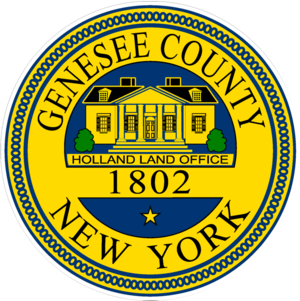
ORLEANS COUNTY
14016 State Route 31, Suite 101, Albion, NY 14411
PHONE: (585)-589-3278 | Open Monday – Friday, 8:00am – 4:00pm
EMAIL: [email protected]
PHONE: (585) 589-5527 or 911 | Fax: (585)589-2873
Orleans County Health Department E-Payment Service
*A convenience fee will apply following the e-payment
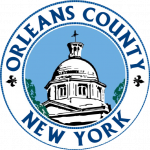
Government Links
Community Resources
Quick Links & News
- GO Health news and Local Health Data
- Programs & Services
- Quick Links
- Genesee County Government
- Orleans County Government
